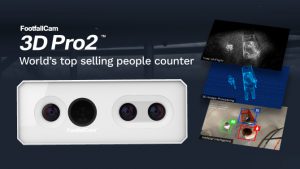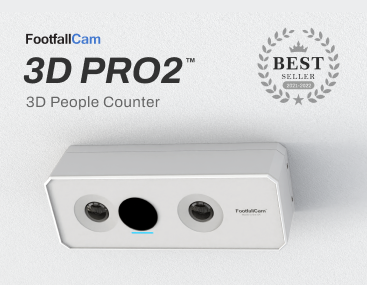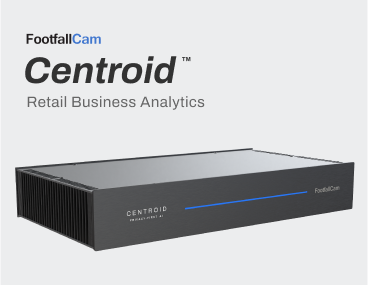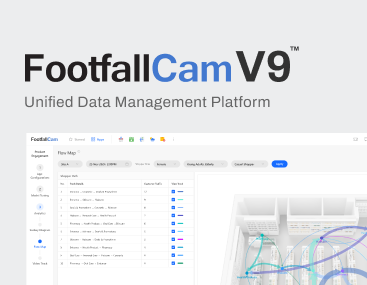
Vendor Selection Criteria
Many customers have a specific vendor selection criterion to ensure they feel confident when going ahead with their choice. One example of this is that they need business-ready people counting data and metrics i.e., they’ll require high accuracy in all hours for all their stores with the stated confidence for each device. Also, if the data accuracy is being compromised, they’ll need to know which counter is being affected, when it occurred, what the reasons are and the action plan to fix it as soon as possible. Other essential criteria include security and privacy (high priority), high data uptime and being able to deliver ready-made integration templates for most major business applications. API also needs to be available for custom integration with other business applications.
Pitfalls in Selecting a Vendor
There are also many pitfalls that customers have when selecting a vendor, one being that they possess lofty and ambitious goals. Meanwhile they’re not focusing on the overall process and selecting the right partner to ensure the system effectiveness is maintained for the long term. Vendors who can guarantee 99.9% are not disclosing the caveat. Customers are often deceived by this false promise, and there is no plan to hold them accountable. Smart customers look beyond the promised accuracy; they assess whether the chosen vendor has the tools and necessary resources in place to maintain the accuracy on an ongoing basis. This is because guaranteeing a certain accuracy will remain an empty promise for the customer if it isn’t backed up by a team of specialists achieving and proactively maintaining it. Many vendors focus on providing their manufacturer’s ‘lab test’ accuracy number. Resulting in failing to highlight and take into consideration the “environmental compromises” which would happen to all customers in varying degrees. Another issue is that vendors may lack the right resources to work on the essential aspects to ensure the correct and realistic accuracy that their customers are expecting. We avoid this issue by having a dedicated team of tuners, project managers and support team who work effectively in conjunction with each other. Since we are the manufacturer, our team has in-depth knowledge and focus on our own products. Suppliers may also lack transparency when providing real accuracy to their customers. It is essential to have the accuracy audit report with real video examples as well as the stated accuracy for each store and individual camera. This is the only way to settle ‘suspicions’ and is an effective benchmark to highlight potential areas of concern. A final risk is that customers may lack visibility of the areas of concern. On top of having access to the verification video proof, customers can always see the accuracy of each of their devices through our software portal. Our support team is tasked with proactive monitoring and will be automatically alerted as soon as potential issues arise.
Past Experience
In the past, we’ve had many experiences of customers looking to swap out old devices. One common reason for replacement is because the client has lost confidence in the accuracy of the devices that had been installed by previous vendors; with the main concern being that they’d lost confidence in their ability to identify and rectify the inaccuracy. One reason that we’ve found that caused the inaccuracies is the use of older technologies that are much less accurate, for example beam counters, thermal counters or 2d cameras. Also, vendors who do not have technical expertise in camera positioning, counting parameters tuning and accuracy auditing causes a lack of accuracy. We’ve found that these are mostly resellers who were not fully supported by their manufacturer, and this results in cases where counters were installed at the incorrect position at the customers’ stores. Inaccuracy can also be caused by the lack of tools and resources a vendor must use to maintain data accuracy. For example, a small or inexperienced team may struggle to maintain data integrity, alert the customer about abnormal counting data, and ensure they’re monitoring acceptable amounts of data errors. If a reseller purchases hardware from the manufacturer and provides their end customer with their own software, this may not be an adequate tool to measure and monitor the accuracy if a small team produced the software for a local market.
Ensure System Readiness in the Long Term

Many customers are used to dealing with systems such as accounting software where 100% accuracy is expected. However for people counting systems, accuracy would not be 100% and varies for each device a customer may have due to internal and external limitations. To achieve long term sustainability, there needs to be dedicated procedures in place during the installation and monitoring process. For example, hourly accuracy needs to be monitored as environmental conditions of specific hours are not accounted for during the tuning of the device. Customers should have full knowledge and understanding of their system and should be confident about the data they’re receiving. This is essential as important business decisions and judgements will be based on the people counting data and other metrics they collect.











